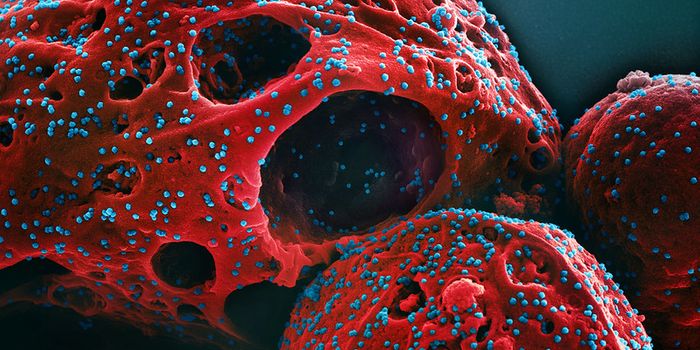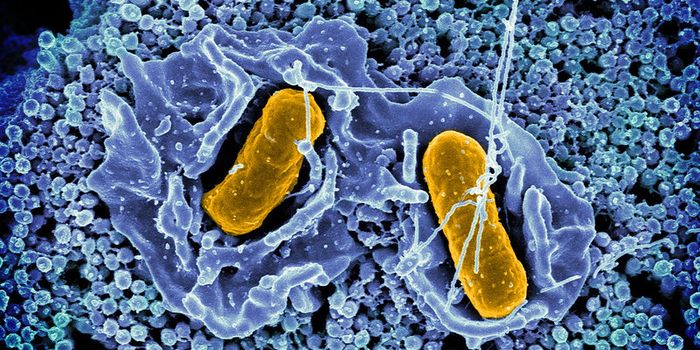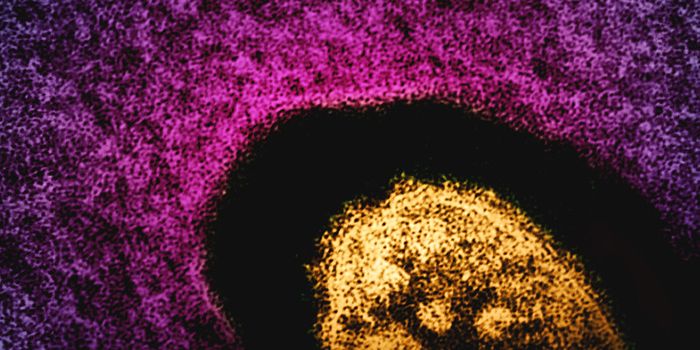Could a probiotic shot one day be used to help people suffering from some mental disorders? Researchers at the University of Colorado at Boulder have found that beneficial bacteria can have anti-inflammatory impacts on the brain that are long-lasting and make it more resistant to the negative effects of stress. This work may help develop probiotic therapies that can protect against anxiety or posttraumatic stress disorder, or may treat depression.
Many people are affected by these mental disorders. Studies have suggested that inflammation in the brain can raise a person’s risk of developing those problems. "There is... robust literature that shows if you induce an inflammatory immune response in people, they quickly show signs of depression and anxiety," said lead author Matthew Frank, a senior research associate in the Department of Psychology and Neuroscience. "Just think about how you feel when you get the flu."
In this work, the investigators exposed rodents to a certain microbe to assess the impact it had on the brain. "We found that in rodents this particular bacterium, Mycobacterium vaccae, actually shifts the environment in the brain toward an anti-inflammatory state," said Frank. "If you could do that in people, it could have broad implications for a number of neuroinflammatory diseases."
Certain parts of the brain also seem to be sensitized by events like illness, surgery, and trauma, which leads to an overreaction to the next stressor. That can ultimately cause cognitive decline and mood disorders.
"We found that Mycobacterium vaccae blocked those sensitizing effects of stress too, creating a lasting stress-resilient phenotype in the brain," Frank said.
Previous work at CU Boulder showed that M. vaccae could reduce anxiety and inflammation in a rodent model. In this research, the scientists wanted to know what the microbe does to the brain.
Mice injected with the bacterium several times over weeks had higher levels of a protein called interleukin-4, an anti-inflammatory protein, in their hippocampal region. That area of the brain regulates anxiety, fear and cognition.
After the animals were subjected to stress, the had low levels of HMGB1, a protein that is thought to have a role in brain sensitization. They also found that CD200R1 was highly expressed, which helps keep glial cells of the brain in an anti-inflammatory state. The rats that were exposed to the bacterium were less anxious.
"If you look at the field of probiotics generally, they have been shown to have strong effects in the domains of cognitive function, anxiety, and fear," explained Lowry. "This paper helps make sense of that by suggesting that these beneficial microbes, or signals derived from these microbes, somehow make their way to the hippocampus, inducing an anti-inflammatory state."
Lowry thinks that people at high risk of developing PTSD could receive M. vaccae, such as first-responders. He is currently studying how a different microbe, Lactobacillus reuteri, might benefit veterans with PTSD.
"More research is necessary, but it's possible that other strains of beneficial bacteria or probiotics may have a similar effect on the brain," he added.
Learn more about the connection between our brains, and bacteria in our bodies from the video.
Sources: AAAS/Eurekalert! Via University of Colorado at Boulder, Brain, Behavior and Immunity









